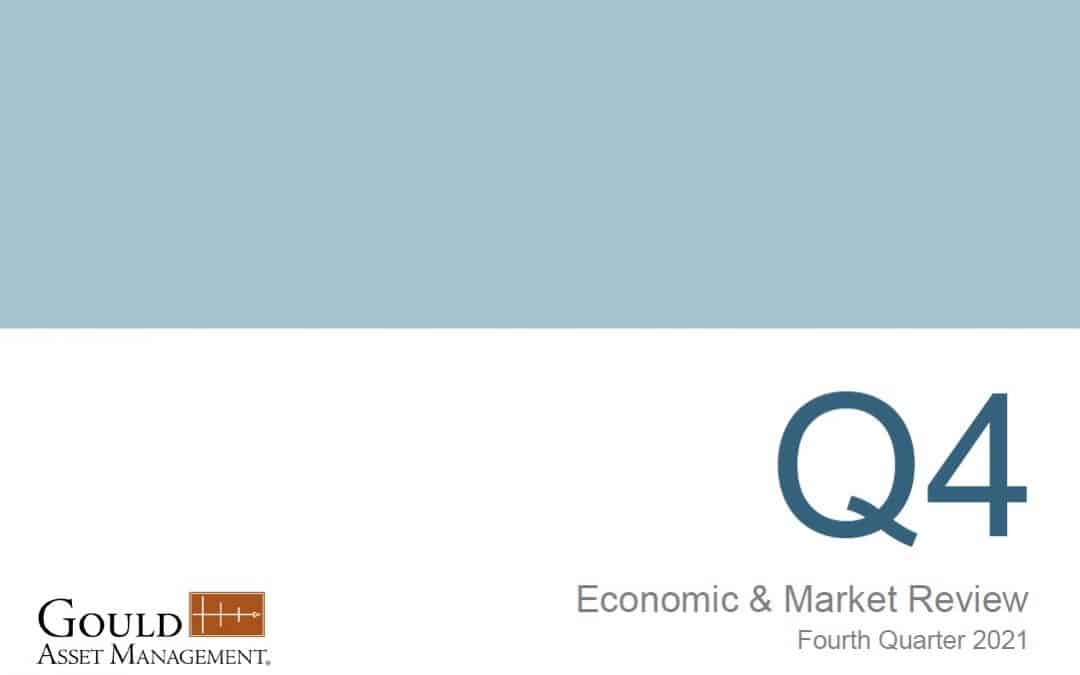by The Gould Asset Management Team Note: This post is an excerpt from Gould Asset Management’s Economic and Market Review for the Fourth Quarter of 2021. The excerpt is posted here for the benefit of our blog subscribers.
Stocks Surge Despite Inflation and Omicron Concerns, Capping Another Strong Year
US stocks finished the year on a strong note despite rising Omicron cases and the highest US inflation rate since 1982. The market was not to be deterred, with US large cap stocks, as measured by the S&P 500 stock index, rising 11.0% in the fourth quarter, finishing 2021 with a remarkable 28.7% gain. This is the third straight year of strong US stock performance.
A market-cap-weighted indexed approach proved best in 2021, with a small number of large cap stocks accounting for a significant portion of US stock gains. This was evidenced by five stocks—Meta (Facebook), Apple, Amazon, Microsoft, and Google—accounting for nearly a third of the S&P 500’s 28.7% gain.
Mid and small cap US stocks, as measured by the Wilshire 4500 index, were unable to keep pace with large caps, rising a modest 1.7% in Q4 and 16.0% on the year. The significant underperformance on the quarter was attributed to fears that slowing economic growth and rising Omicron concerns would disproportionately impact smaller firms.
Technology stocks, led by strong gains from chipmakers, were the best performing sector in the fourth quarter, rising 16.6% in Q4 and 34.7% on the year. Financials took the top spot on the year—rising 35.0% in 2021—as higher interest rates increase lending profits. Utilities and Consumer Staples trailed the pack, but even they rose 17.7% and 17.3%, respectively, in 2021.
International stocks were unable to keep pace with US equities, lagging for both the quarter and the year, as international economic growth remains slow and the US dollar strong (up 3.3% in 2021). The MSCI EAFE index rose 2.7% in the fourth quarter, finishing the year up 11.8%, or less than half the return of US stocks.
Emerging markets stocks were weaker still, declining 1.2% in Q4 and 2.2% for the year. The causes are myriad, ranging from political instability (Chile), to geopolitical tensions (Russia), to inflation concerns (Brazil), and currency volatility (Turkey), not to mention the impact of Covid. Valuations look attractive, but that’s been the case for many years. Patience is counseled
To continue reading, please see our entire Economic and Market Review.

